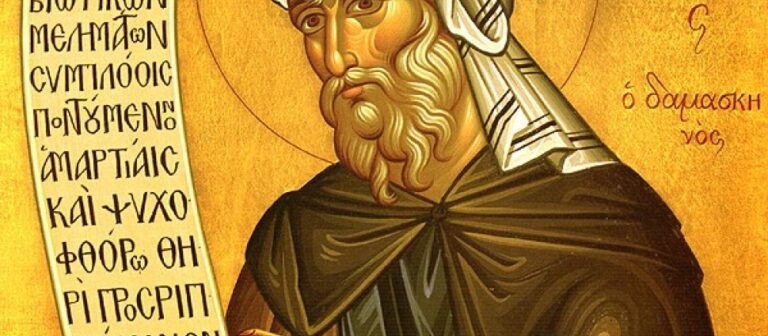
Justification and Roman Catholicism
It shouldn’t surprise Protestant readers that our Roman Catholic friends (or maybe they’re not your friends) really do believe that God justifies sinners. When they read Romans 3:19-26 they also say “Amen!” But of course, it’s what is meant by the term justify that needs careful clarification. In fact, it’s that very definition which makes the difference between calling our Roman Catholic neighbors merely a friend or a brother.[1]
The history of Rome’s understanding is itself variegated and in no way lends itself to an easy retelling, at least not in a short article like this. There’s a story about an argument over justification by faith, held during the two-decade deliberation of the Council of Trent, where “the Bishop of La Cava wrenched the beard of the Cretan Bishop of Chironissa, who had commented that he was either a knave or a fool for sounding a bit like Martin Luther on justification.”[2] And yet, you could turn to many of Thomas Aquinas’ statements on justification and easily conclude that he sounds exactly like Martin Luther. That is to say, there is not a clearly defined doctrine of justification which is easily traceable throughout the history of the Catholic Church. This is partly why there could be such a vague document like the Evangelicals and Catholics Together, which plays on how close Catholics and Protestants can seemingly come. Yet, being close is not the same thing as being faithful and when it comes to the Gospel, faithful is essential whereas being close is still an eternally distant “close.”
It is not quite right to say that the Roman Catholic church opposes salvation by grace through faith. Their own Catechism explicitly states that a person is made right with God by God’s grace, and that grace is accepted by faith. “The first work of the grace of the Holy Spirit is conversion, effecting justification… Moved by grace, man turns toward God and away from sin, thus accepting forgiveness and righteousness from on high.”[3] Indeed, it is often argued that Rome contends for a kind of justification accomplished merely by works and merit, but again, their own Catechism states that “since the initiative belongs to God in the order of grace, no one can merit the initial grace of forgiveness and justification, at the beginning of conversion.”[4]
But here we begin to see the way in which the Roman Catholic Church can seem so close and yet simultaneously diverge so far from the Protestant perspective. “No one can merit the initial grace of forgiveness and justification” – that is great. But there is also, in their schema, a continued grace of justification which can and ought to be merited. So again, quoting from the Council of Trent, the Catechism goes on to say that “Justification is not only the remission of sins, but also the sanctification and renewal of the interior man,” and that, after that initial grace of forgiveness, “we can then merit for ourselves and for others the graces needed for our sanctification, for the increase of grace and charity, and for the attainment of eternal life.”[5] Notice how justification is equivalent to and defined by sanctification; there is no sharp distinction between the two.
Now there is, to be sure, a whole history of doctrine that lies behind this way of understanding justification, one marvelously retold and examined in volume 1 of Michael Horton’s Justification. Part of the story emerges out of Jerome’s mistranslation of the Greek word dikaioō where in his Vulgate he translates the verb as “to make righteous” rather than “to justify.” It was a kind of etymological fallacy taking place where the Latin term iustificare, a compound of iustum (“just” or “righteous”) and facere (“to make”), now controlled the medieval reading of what St. Paul was saying.[6] And so in this reading, yes, the law is not sufficient to make anyone perfect or right before God, and therefore we are all in need of grace, but this grace is something that “makes” a believer righteous, not something which is only legal or declarative.
Here we see the Roman Catholic emphasis on infused righteousness over and against Paul’s understanding of imputed (or credited) righteousness. Rather than seeing justification as the declarative judgment of God, that the believer is no longer condemned because of Christ’s righteousness, the Roman Catholic understanding of justification consists in an actual change, an ontological morphing, within the believer. Justification then involved the process of a believer becoming righteous, and in the Catholic schema of theology, this was accomplished through the use of sacraments. Thus – and this was not the case in the majority of early church thought – justification, or a person’s final justification to be exact, became the goal for which the individual aimed; a goal brought about by God’s grace, yes, but only met through the merit performed throughout a believer’s life.
Michael Horton astutely notes that, “as counterintuitive as it may seem from a Protestant perspective, within the medieval paradigm emphasis on infused righteousness is motivated by a concern to avoid any semi-Pelagian (much less Pelagian) notion of attaining righteousness apart from grace.”[7] Grace is loudly affirmed! But it is a grace worked into the believer which actually changes their nature and infuses within them the virtue to live righteously. Sinclair Ferguson memorably puts it this way, that “we realize while Rome always taught that salvation was never without grace, it denied that it was by grace alone and faith alone. It thus essentially dis-graced grace.”[8]
Catholic apologist Trent Horn states the matter clearly when he says that “Catholics believe in a restorative view of justification rather than a purely forensic or legal view. God certainly declares us to be righteous, but just as God’s declaration ‘Let there be light’ (Gen. 1:3) created actual light, God’s declaration of our justification creates actual righteousness in those he justifies. The Catechism says, ‘with justification, faith, hope, and charity are poured into our hearts, and obedience to the divine will is granted to us’ (CCC 1991).”[9] So how does this relate to the Protestant emphasis on faith alone? Again, Horn comments that “when the believer cooperates with God’s grace and lives out his faith in Christ, his free acts of charity and obedience contribute to his ongoing justification.”[10]
Traditional Protestant theology has argued that this is a confusing of justification and sanctification and that to say a believers justification is “on going” is to take away the very foundation of the Gospel. Nineteenth century Scottish pastor and Free Church professor of Systematic Theology, James Buchanan, gets it right when he says that Rome’s understanding of justification “amounts to this: that the righteousness by which we are justified is a righteousness infused and inherent; that it is called our own righteousness because it is inherent in us; and that it is also called the righteousness of God because it is infused by him. This is the radical error; for the whole question between the Popish and Protestant churches lies here: Are we justified by our own righteousness, or by the righteousness of Christ? By a righteousness infused and inherent, or by a righteousness imputed, which is not in us but in him?”[11]
Does the word justify actually mean to make righteous? One could gather from statements like Romans 5:19 that that is what Paul understood, that “by the one man’s disobedience the many were made sinners, so by the one man’s obedience the many will be made righteous.” But this verse alone, taken out of context and separated from the myriad of other passages which do speak of righteousness and justification as being forensic and legal, cannot suffice as a proof-text.[12] Indeed, when Paul speaks of a believer’s righteousness it is often in terms of being counted or credited (logizomai) as righteous.[13] As New Testament scholar Thomas Schreiner notes, “When we are told that faith is counted as righteousness, it isn’t because faith is our righteousness. Instead, sinners who aren’t righteous are counted as righteous and considered as righteous, even though they are not righteous in themselves. They are counted to be something that is not theirs inherently.”[14]
It is precisely at this point where the Protestant understanding of justification diverges from the Catholic. The believer, by Faith Alone, is counted righteous not because of anything found within himself, but because of a righteousness found in Christ Alone. This is why Paul can declare that, “because of God you are in Christ Jesus, who became to us wisdom from God, righteousness and sanctification and redemption, so that, as it is written, ‘Let the one who boasts, boast in the Lord.’”[15] The believer’s righteousness is emphatically a foreign and alien righteousness; it is Christ’s righteousness through and through and in no way do we add to or supplement his saving work on our behalf with our righteousness. As the Calvin himself says, with a side eye at Roman Catholicism which attempts to unite faith and the work of love in a person’s justification, “We confess with Paul that no other faith justifies but faith working through love. But it does not take its power to justify from that working of love. Indeed it [that is, faith] justifies in no other way but in that it leads us into fellowship with the righteousness of Christ.”[16]
Stephen Unthank (MDiv, Capital Bible Seminary) serves at Greenbelt Baptist Church in Greenbelt, MD, just outside of Washington, DC. He lives in Maryland with his wife, Maricel and their two children, Ambrose and Lilou.
[1] This is not at all to say that there are no true believers within the Roman Catholic fold, it is only to say that the explicit teaching of the Roman Catholic church deviates enough from a biblical understanding of justification that to cognitively affirm its doctrine and thus oppose a Protestant (i.e., Biblical) understanding is to cast doubt and take away any assurance of true faith. Galatians 1:6-9. Though the Puritan John Owen beautifully affirms in his work The Doctrine of Justification by Faith (vol. 5 in the Collected Works, The Banner of Truth Trust, see page 164) that some may actually be justified by faith alone even though they deny such a doctrine. Roman Catholic dogma maintains a similar degree of sharp separation when in the introduction to the Council of Trent’s decree on Justification they say, “there is being disseminated at this time, not without the loss of many souls and grievous detriment to the unity of the Church, a certain erroneous doctrine concerning justification…”
[2] Diarmaid MacCulloch, All Things Made New: The Reformation and Its Legacy (Oxford University Press, 2016), p. 71
[3] The Catechism of the Catholic Church, 1989.
[4] Ibid., 2010
[5] Ibid., 1989 and 2010
[6] See Korey D. Maas, “Justification by Faith Alone” in Reformation Theology: A Systematic Summary, ed. Matthew Barrett (Crossway, 2017), p. 516-517
[7] Michael Horton, Justification, vol 1 (Zondervan, 2018), p. 103-104
[8] Sinclair Ferguson, Some Pastors and Teachers: Reflecting a biblical vision of what every minister is called to be (The Banner of Truth Trust, 2017), p. 496-497
[9] Trent Horn, The Case for Catholicism: Answers to Classic and Contemporary Protestant Objections (Ignatius Press, 2017), p. 207
[10] Ibid., p. 208. More emphatically, the Council of Trent declares that “if any one saith, that by faith alone the impious is justified… let him be anathema.”
[11] James Buchanan, The Doctrine of Justification (The Banner of Truth Trust, 2016), p. 132
[12] See Rom. 2:13; 3:20; 3:24; 3:26; 3:28; 5:1 8:33-34; Gal. 2:16; 3:11; 3:24; 5:4
[13] See Rom. 3:28; 4:3, 5, 9, 10, 11, 22, 23, 24; Gal 3:6
[14] Thomas Schreiner, Faith Alone: The Doctrine of Justification (Zondervan, 2015), p. 165
[15] 1 Corinthians 1:30-31
[16] John Calvin, Institutes of the Christian Religion, III.11.20
























